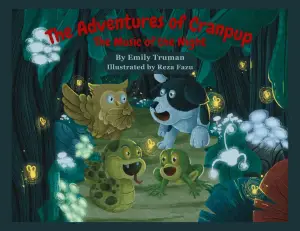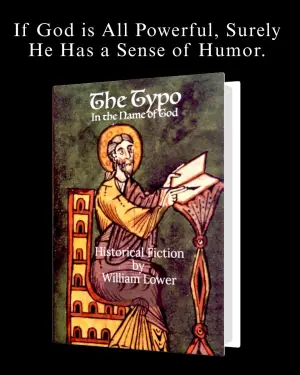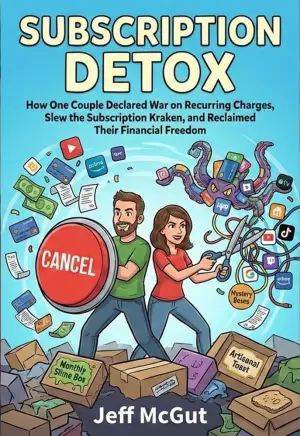Book lovers often find themselves seeking community, knowledge, and inspiration. Enter book conventions and festivals – gatherings particularly for these purposes. The problem many face, however, is distinguishing between the two and understanding what they truly offer.
Table of Contents
What Are Book Conventions?
Book conventions are events that celebrate literature and the community around it. They involve authors, publishers, readers, and other industry professionals. While conventions often focus on networking, business opportunities, and discussions about the book industry, festivals focus on celebrating stories with readings, panel talks, and activities designed for all ages.
Types of Book Conventions
There are a few prominent types of book conventions. Each serves a different purpose and attracts unique audiences:
- Fiction Conventions: These conventions focus on genres such as science fiction, fantasy, and romance. A notable example is the World Science Fiction Convention, where fans can meet authors, attend readings, and participate in themed events.
- Publishing Conventions: These cater to publishers, agents, and industry insiders. Conferences such as the Association of American Publishers Annual Meeting provide industry professionals with updates on trends and chances to network.
- Academic Conventions: These target scholars and writers in academia, showcasing research and publications. The Modern Language Association Convention is a prime example, drawing university faculty and students to discuss literature and linguistic studies.
The Essence of Book Conventions
Networking Opportunities
At conventions, authors can meet agents, publishers, and fellow writers. For instance, at an event like BookExpo America, authors can pitch their books directly to publishers and make valuable connections. These face-to-face interactions may open doors that might not be accessible through emails or phone calls. Networking at conventions can lead to breaking into markets or finding new collaborators – a win for both seasoned authors and newcomers.
Panel Discussions and Workshops
Conventions often host panel discussions on various topics relevant to the publishing industry. For example, a panel might spotlight recent trends in self-publishing. Authors on these panels share their experiences and offer tips for succeeding in indie publishing. Workshops might include writing techniques or marketing strategies, offering practical tools writers can take home and apply. Events like the San Diego Comic-Con often blend literature with pop culture, featuring workshops that can help an author understand how to market their work in a comic book format.
Industry Insights and Trends
Attending a book convention allows attendees to glean insights straight from industry leaders. For example, a seminar could cover the future of e-books and audiobooks, showcasing statistics and projections that inform writers’ decisions moving forward. This knowledge helps authors to remain relevant, understand their audience, and craft works that resonate in a changing market.
Benefits of Attending Book Conventions and Festivals
Attending these events can be invaluable for readers, writers, and anyone connected to the book industry. Here are some of the primary advantages of participating in conventions and festivals:
Networking Opportunities
These gatherings are a goldmine for networking. Authors can meet publishers, agents, and fellow writers to discuss collaborations or book deals. For instance, indie authors might meet someone who shares their journey and could offer advice on self-publishing.
Exposure to New Ideas
Book conventions and festivals often showcase a variety of genres and styles. Attending these events introduces writers to fresh perspectives and creative ideas. An author might walk away from a convention with an entirely new concept for their next book.
Market Trends and Insights
Industry events often feature discussions on market trends and evolving reading habits. By attending, you gain firsthand knowledge of what readers want. For example, a convention might spotlight the rising trend of audiobooks, giving writers insights into where their next project might fit in.
Choosing the Right Event
Identifying Personal Goals
Attendees need to identify their goals before attending either type of event. Are they looking to network, learn about the industry, or celebrate their love for books? Those aiming for business connections should consider conventions, while those focused on engaging the community and celebrating literature may prefer festivals.
Researching Events
Not all conventions and festivals are created equal. Researching previous years can provide insight into what to expect. Look for attendee feedback on social media or event review websites. For instance, attending the AWP Conference, known for its focus on writing programs, differs wildly from participating in the Adult and Teen Choice Book Festival, which targets a younger demographic.
The Experience of Attending a Book Convention
Attending a convention involves more than just sitting in panels or wandering around booths. It’s about engagement and enjoying the atmosphere.
Planning Your Convention Schedule
With so many events happening at once, careful planning boosts the experience. Many conventions post schedules early, which helps attendees pick panels and decide which authors to meet. This early information allows choice and minimizes last-minute stress. For example, suppose a favorite author speaks on a panel at the same time as an intriguing workshop. In this case, a schedule helps you choose and map out your day.
Making Connections
Don’t shy away from mingling! Many professionals attend these events to make connections. Bring business cards and be open to networking opportunities. You might find yourself chatting with an agent over lunch or collaborating with a fellow author on a project sparked by an impromptu conversation.
Participating in Q&A Sessions
Engagement is key at conventions. During Q&A sessions after panels, don’t hesitate to ask questions. Whether you’re seeking writing advice or insights about the industry, this interaction can lead to valuable conversations. Who knows? An established author might offer you feedback on your book idea if you inquire about their writing process.
The Challenges of Book Conventions and Festivals
While attending book conventions and festivals can be immensely rewarding, they also come with their challenges. Here are a few that attendees should consider:
Overwhelm of Choices
With a myriad of events happening simultaneously, it’s easy to feel overwhelmed. It’s beneficial to prioritize events aligned with your interests. If you aim to invite your writing, choose workshops that cater to that goal instead of being tempted by more entertainment-focused panels.
Cost Considerations
Some conventions and festivals can be pricey, especially when factoring in registration fees, travel, and accommodation. However, many events offer options for limited-access tickets or virtual attendance, which can be more budget-friendly.
Time Commitment
These events often last several days and require a significant amount of time and energy. To make the most of your experience, prepare by resting before the event and planning your schedule that lets you explore and meet new people without burning out.
Inclusivity in Book Conventions and Festivals
The literary scene is shifting towards inclusivity, favoring diverse voices and audiences. Many conventions and festivals have taken steps to ensure they reflect a broader community.
Highlighting Diverse Voices
Diversity has become a focal point in many literary events. Conventions such as the African American Literature and Culture Conference highlight Black authors and scholars, providing writers a platform to discuss representation in literature.
Accessibility
Many events are now prioritizing accessibility for attendees with disabilities. These efforts may include providing sensory-friendly spaces or ensuring venues are wheelchair accessible. By giving more people the chance to attend, these conventions contribute to a richer literary dialogue.
Looking into the Future of Book Conventions and Festivals
In the ever-evolving literary landscape, conventions and festivals are adapting to meet the needs of writers and readers. During the pandemic, online events rose in popularity. These virtual gatherings let people join from anywhere, making travel unnecessary.
Online Engagement
As technology continues to influence the literary world, the integration of virtual attendance options may remain. Authors can connect with fans worldwide, and workshops can accommodate more participants than ever before.
Evolving Formats
Future conventions may also see more innovative formats, such as hybrid events that offer both in-person and online experiences. This flexibility could enhance engagement and increase accessibility.
The Role of Social Media
Social media has become a powerful tool for promoting book conventions and festivals. Through platforms like Twitter, Instagram, and Facebook, organizers can create buzz around upcoming events.
Building Anticipation
Teaser campaigns featuring author interviews, behind-the-scenes posts, and event highlights can build excitement. Attendees can follow along and engage with the content leading up to the event, making them feel an integral part of the convention community.
Real-Time Updates
During events, organizers can use social media to share real-time updates. Suppose a panel room becomes too crowded or an author arrives early for signings. In this case, timely alerts can ensure attendees don’t miss out on opportunities.
Additional Information
Book conventions are treasure troves of knowledge and opportunity, but they hold some secrets that can enhance your experience.
- Networking Goldmine: Attendees often underestimate the power of casual conversations. Striking up a chat with a fellow participant can lead to valuable connections or even collaborations down the line.
- Not Just for Authors: While many think book conventions are exclusive to authors, they also welcome publishers, agents, illustrators, and readers. This mix creates a vibrant atmosphere where everyone can share and learn.
- Hidden Sessions: Many conventions offer breakout sessions or workshops that organizers don’t promote widely. These can feature industry insiders sharing insights that you won’t find in the main sessions.
- Swag Bags Beyond Books: Swag bags often contain free goodies such as bookmarks, book-themed merchandise, or even exclusive content. Exploring these can yield unexpected finds.
- Pitch Opportunities: Many conventions include pitch sessions, where writers present book ideas to agents or editors within a set time limit. These sessions often help writers secure their first publishing deals.
- Fan Fiction Is Taken Seriously: Some conventions have panels dedicated particularly to fan fiction and its place in literature. These sessions provide writers a chance to connect with like-minded people and receive helpful feedback.
- Volunteer Benefits: Volunteering at a book convention gives volunteers free admission, special backstage access, and connections that regular attendees often miss.
- Diverse Genres Showcased: Attendees can find conventions for specific genres, which allow these writers to discover storytelling styles not usually highlighted at general events.
- Book Signing Etiquette: Authors often appreciate it when fans come prepared with specific questions rather than just asking for a signature. It can lead to a more meaningful interaction.
- Social Media Buzz: Book conventions are a hotspot for social media interaction. The following hashtags associated with the event can expose you to real-time insights and updates.
- Plan for Q&A: Panels often feature a Q&A session that can lead to remarkable insights. Come prepared with thoughtful questions; it can make all the difference in the discussion.
- Expand Your Reading List: Discovering new authors and genres through convention panels or book displays can significantly expand your reading horizons and bring fresh voices into your collection.
Frequently Asked Questions (FAQs) Related to What Are Book Conventions
Q. What are book conventions?
A. Book conventions are events where authors, publishers, and book lovers come together to celebrate literature. They typically include panels, workshops, signings, and networking opportunities.
Q. Why should authors attend book conventions?
A. Authors can gain exposure, connect with readers, network with industry professionals, and learn about the latest trends and techniques in writing and publishing.
Q. Do book conventions focus on specific genres?
A. Yes, many book conventions cater to specific genres, such as romance, science fiction, or fantasy, allowing attendees to meet others with similar interests.
Q. How can attending a convention benefit readers?
A. Readers can meet their favorite authors, discover new books, attend discussions on writing and storytelling, and participate in fun activities related to literature.
Q. Are there costs associated with attending book conventions?
A. Yes, there may be registration fees, travel expenses, and costs for accommodation. However, many conventions also offer free or low-cost options for attendees.
Q. What should I expect at a book convention?
A. Expect author signings, panel discussions, workshops, vendor booths, and networking opportunities, all set in a lively and enthusiastic atmosphere.
Q. How do I choose the best convention to attend?
A. Look for conventions that focus on your interests, check the guest author lineup, and consider the location and size to find the best fit for you.
Q. Can self-published authors participate in book conventions?
A. Absolutely! Many conventions welcome self-published authors, offering writers the chance to showcase their work and connect with readers and industry professionals.
Q. How do book conventions promote literacy?
A. They encourage reading by highlighting diverse authors and books, offering workshops on writing, and creating a community passionate about literature.
Q. What is the best way to prepare for a book convention?
A. Make a plan! Research the schedule, list the authors or panels you want to see, network with other attendees, and be ready with business cards or copies of your work.
Conclusion
Book conventions and festivals are vibrant gatherings that celebrate literature and the community surrounding it. They offer a unique opportunity for authors, readers, and publishers to connect, share ideas, and inspire one another. Whether you’re looking to network with industry professionals, discover new books, or indulge your love for reading, attending these events can enhance your appreciation for literature. So, mark your calendar for the next book convention or festival in your area, and dive into the world of books like never before!







